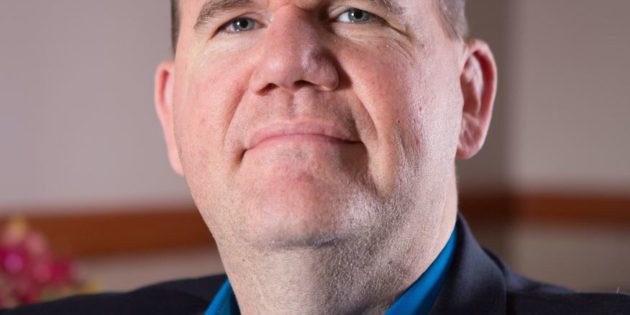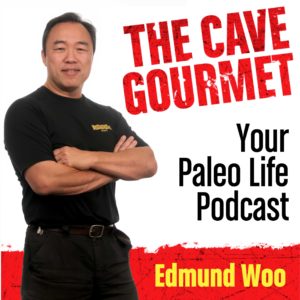At age 32, Jimmy Moore went from 410 lbs to shedding 180 lbs in one year, shrinking his shirt size from 5XL to XL, and his waist size by 20 inches. This dramatic weight loss left him inundated with questions and requests from people about how he did it. He is the author of multiple books since then, including the Ketogenic Cookbook. He is the host of the Livin La Vida Low Carb podcast.
6:00
In 2004 I read Dr. Atkins’ Diet Revolution, and he was emphasizing to eat fats but no carbs, so I tried the Atkins Diet by the book, and I lost 30 lbs in the first month. The second month I had so much energy I didn’t know what to do with it. I started going to the gym and just walking a little on the treadmill, so I lost another 40 lbs that month.
If your body gets that big, it’s going to fight you tooth and nail if you gain any back and then try to lose it again. That’s when the challenge becomes figuring out how to tweak things even further from there.
12:00
There’s a lot of misinformation around the Atkins diet now. Science has refuted a lot of what we’ve been told about health in general. The sugar industry pays researchers to be quiet about certain studies that would have basically damned sugar. The pharmaceutical companies are responsible for squelching knowledge as well.
15:00
The average consumer typically doesn’t understand that the USDA and their regulations are just like doctors–they need to be vetted by science. Many doctors haven’t been trained in nutrition science and they get their information from the USDA. Governmental agencies are bureaucrats, not nutrition researchers looking into their “dietary guidelines.” They are industry shills who have oftentimes been paid by Big Food or pharmaceutical companies.
19:00
Fasting is a learning experience; it’s like riding a bike—you’ll fall off and scrape your knee a few times but the more you do these fasts your body adapts. Bone broth, sea salt, and kombucha are helpful in the beginning, (although kombucha not recommended always bc the sugar mimics hunger in your body). If when fasting you don’t feel well and become really weak, you need to eat something. This is very helpful for people with severe metabolic damage and insulin resistance, but for many people this isn’t necessary. Eat ketogenic and it happens naturally.
25.00
Most people don’t believe me when I say hunger was/is not as bad as you think. You’re eating when you’re not eating. You’re eating your stored body fat; even for the leanest person, if you have just a little bit of body fat, you have 40,000+ calories worth of fat on their body to fuel them past a fasting period.
27.50
When you’re not putting food in your body how do you prevent muscle deterioration?When you eat an excess of carbohydrates your body converts it to body fat, so your body is storing up all of this energy to be used on demand when it’s needed. So when you go to burn that fuel that your body has stored away, (and it can only store so much carbohydrate in the form of glycogen in the muscles), then it gets turned into body fat. It can’t store protein, it actually has to convert any excess protein into glucose and then the glucose that doesn’t get used up as energy gets stored into body fat. We’re not storing muscles for energy, we’re storing fat. So why do people think when you start tapping into energy on the body it immediately goes for the muscles? You don’t burn up muscle because your body preferentially chooses the fat for fuel, especially in the context of a ketogenic diet or if you don’t eat anything at all.
32:00
To address people’s fear of slowed metabolism when fasting:
When you don’t eat any food at all you actually rev up your body’s metabolism by 10%. Partly because your body isn’t having to guess what the fuel source is. It’s much worse if you’re only consuming a 500 or 600 calorie diet with a few carbs in it, which makes it very difficult for your body to make that decision. Are we glucose burners or are we fat burners? It gets stuck in no-man’s land and that’s when your metabolism slows down. When you eat nothing after about a 48 hr period your body has no choice but to tap into those fat stores.
33:00
New technology has emerged making it easier to test your ketone level than in the 70s. There are different options at different price points.
38:00
There are supplements to take if you are struggling with ketosis for therapeutic purposes, especially early on when you’re starting a ketogenic diet. It is not meant to be in lieu of eating low-carb.
41:30
Type 3 diabetes and Alzheimer’s/dementia are essentially a disregulation in blood glucose levels, which is directly related to your carbohydrate intake and even your protein intake. Most chronic diseases of our day—(heart disease, cancer, neurogenerative diseases)—all come back to proper nutrition and controlling insulin levels, which is why a paleo / primal / low-carb ketogenic diet is so powerful. These are the answers to all of these metabolic issues that are causing the diseases of our day.
Visit livinlavidalowcarb.com for more information about Jimmy Moore’s work, books and his podcast.
Podcast: Play in new window | Download



Recent Comments